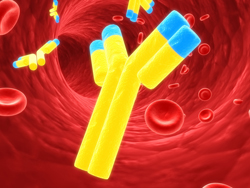Predicting cancer response to immunotherapy
Cancer constitutes one of the most intractable diseases, contributing to extensive physical and psychological suffering of many people worldwide. Targeting the immune system of cancer patients has emerged as a promising therapeutic approach. Results from immunotherapy trials suggest that inducing tumour-specific T cell responses to tumour antigens can, in some patients, cause regression of tumours or the stabilisation of the disease. However, the reasons why immunotherapy fails to control and destroy residual cancer cells remain to be fully established. To address this issue, the EU-funded ENACT project aimed to identify cancer markers associated with resistance to immunotherapy. A vast array of cellular, immunological, biochemical and molecular biology techniques were used to elucidate the mechanisms underlying antigen presentation and recognition of tumours by T lymphocytes and natural killer (NK) cells. Clinical samples were collected by all partners and used in immune assays and for proteomics analysis to identify initial biomarkers. Antigen presentation MHC I receptor and killer cell immunoglobulin-like receptor (KIR) polymorphisms were assessed in prostate and melanoma samples. Coupled to data on the antibody repertoire, this information was used as an indicator of melanoma patient response to immunotherapy. ENACT immunotherapy treatment indicators are of immense importance as they could be used to design assays for predicting a patient’s response to therapy. Apart from directing treatment accordingly, this information could form the basis for the development of ‘next generation’ vaccines.







